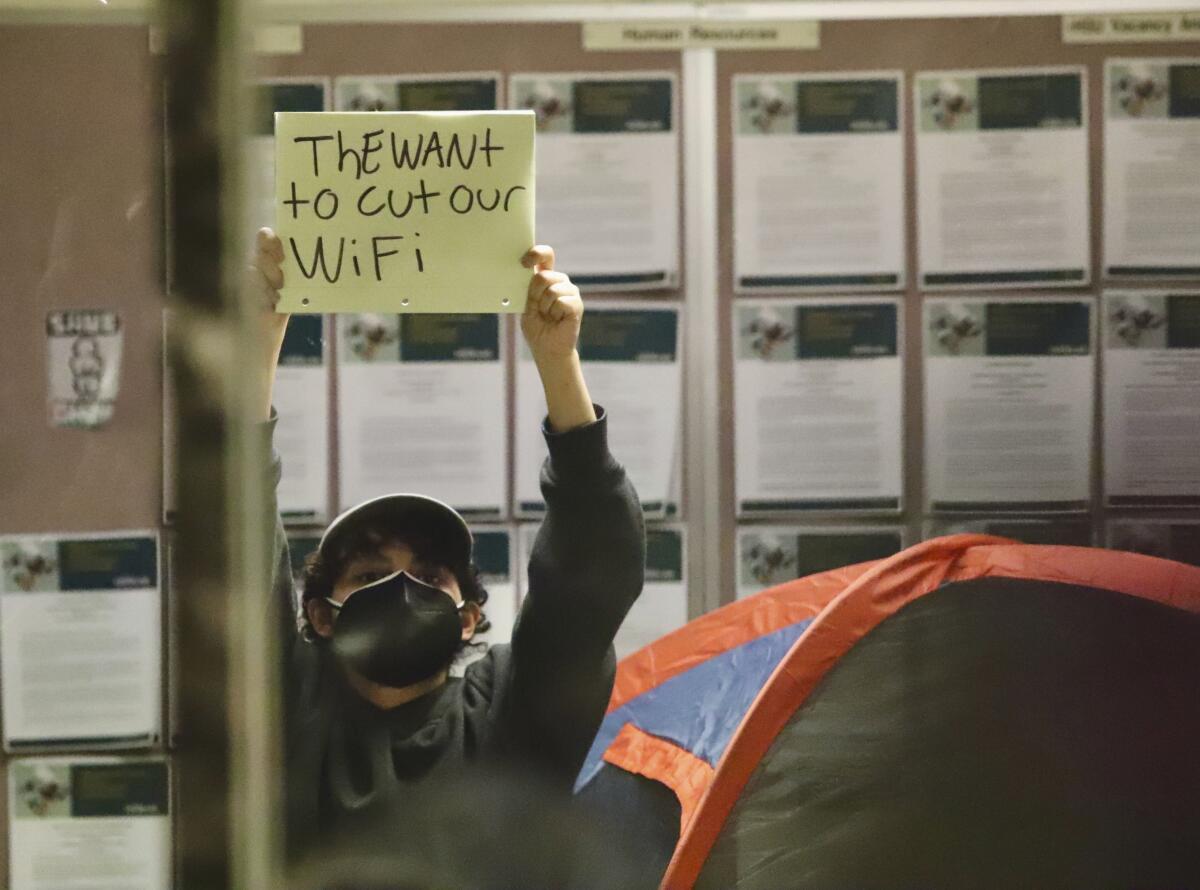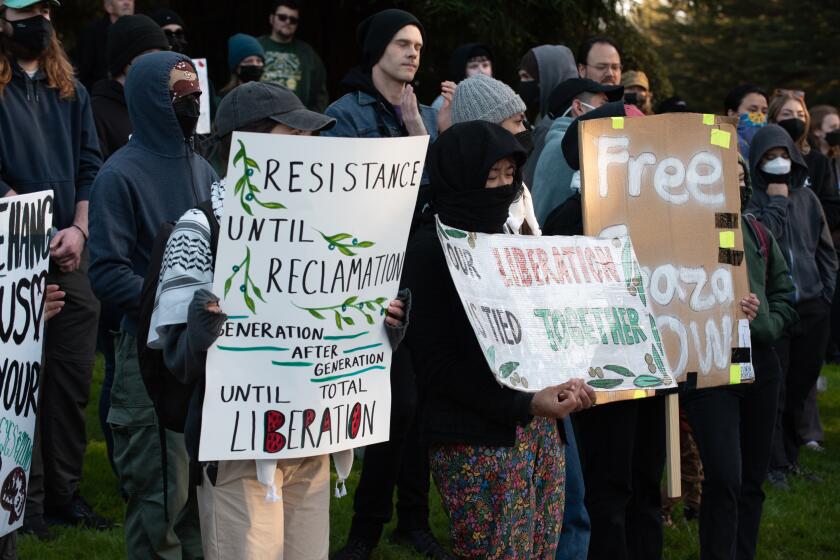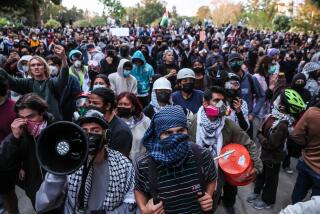Tense standoff at Cal Poly Humboldt ends with arrest of dozens of Gaza war protesters

- Share via
ARCATA, Calif. — After a tense standoff overnight with Gaza war protesters at Cal Poly Humboldt, police moved in early Tuesday and arrested at least 25 people, including students and professors.
On Monday night, authorities told more than 100 protesters on campus they had to leave, but most remained. Demonstrators, some wearing goggles, helmets and makeshift shields, spent the night chanting and playing music. At 9 p.m., a police vehicle drove by to announce they could be subject to rubber bullets and chemical agents.
Some faculty members, who were told by the university that they should not enter campus, massed just outside, observing.
Pro-Palestinian encampments have sprung up on the campuses of UC Irvine, UC Riverside, Occidental College, Sacramento State and San Francisco State, among others.
Protesters have occuped Siemens Hall, an academic and administration building, and another building, forcing the campus to close for a week.
Early Tuesday, police moved in and made the arrests. As part of the operation, officers said they cleared Siemens Hall and Nelson Hall East. It is unclear when the campus will reopen.
“This is a difficult day. It breaks my heart to see it, and truly nobody wanted to see things come to this. We’ve all watched this with great concern, and always with the sincere hope that it would be resolved peacefully,” Cal Poly Humboldt President Tom Jackson Jr. said in a statement. “Unfortunately, serious criminal activity that crossed the line well beyond the level of a protest had put the campus at ongoing risk.”
Many protesters and faculty thought the closure of campus was unnecessary and the university had escalated the situation for unwarranted reasons. The occupation of one building did not seem to merit a complete lockdown, they said.
Many demonstrators also bristled at allegations that they were violent, firing back that they were peaceful while it was police who had been violent.
No injuries were reported. The university said “those arrested faced a range of different charges depending on individual circumstances, including unlawful assembly, vandalism, conspiracy, assault of police officers and others. In addition, students could face discipline for conduct violations while any university employees arrested could face disciplinary action.”
One of the activists arrested, assistant professor Rouhollah Aghasaleh, vowed to reject any bond and embark on a hunger strike until he and all his students were released.
“I refuse to accept the label of criminal for standing up for an ethical reason,” he wrote in a statement before his arrest. “Our arrest on a stolen land and in a place that we consider home is an act of violence.”
As sprawling pro-Palestinian protests and encampments escalate on university campuses across the United States, administrators respond with more discipline.
Last week, three students were arrested after demonstrators occupied Siemens Hall and clashed with law enforcement officers wearing helmets and riot shields who descended on campus.
According to the university, protesters blocked entrances and elevators with tents and in some locations shut doors using chains and zip ties, violating fire codes and “creating extreme safety hazards for those inside.”
Campus administrators said there were reports that protesters broke into the president’s office and accessed sensitive materials — allegations the protesters deny.
Officials said “hateful graffiti” also has been painted on university property in recent days.
Times staff writer Garrison reported from Arcata and Jarvie from Atlanta.
More to Read
Sign up for Essential California
The most important California stories and recommendations in your inbox every morning.
You may occasionally receive promotional content from the Los Angeles Times.














